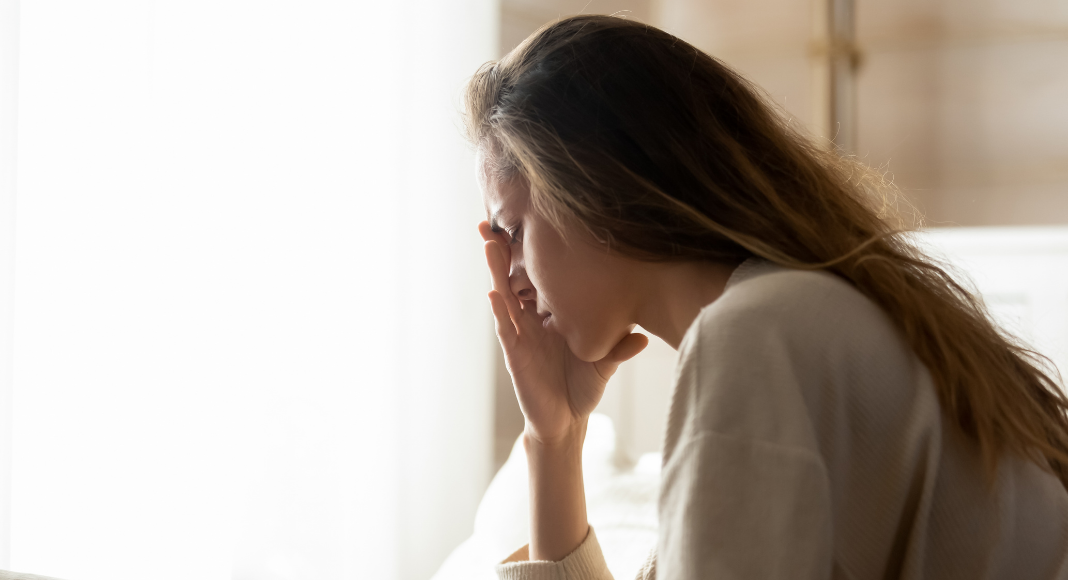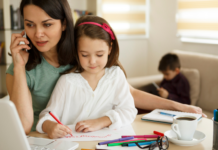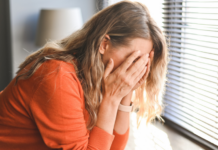 I closed my computer and headed downstairs after a day of seeing clients virtually. It is my usual routine. I walked passed the TV, noticing it was a little louder than expected, but otherwise, I was somewhat distracted and not catching what was being said. As I headed to the sink, something made me look up, and as I read the headline and let the words from the newscaster hit me, I yelped some version of you have got to be kidding me, yet more expletive-ridden, and then something like “not again” and some pleading words about “why?!”
I closed my computer and headed downstairs after a day of seeing clients virtually. It is my usual routine. I walked passed the TV, noticing it was a little louder than expected, but otherwise, I was somewhat distracted and not catching what was being said. As I headed to the sink, something made me look up, and as I read the headline and let the words from the newscaster hit me, I yelped some version of you have got to be kidding me, yet more expletive-ridden, and then something like “not again” and some pleading words about “why?!”
I blankly looked at my husband and wordlessly sat and stared at the television as I have done way too many times throughout my life. I was flooded with thoughts; similar to those I assume many of you are also experiencing. Thoughts along the lines of why this keeps happening, how can we make it stop? It is so tragic and senseless yet keeps happening.
The feelings of helplessness and hopelessness are all too familiar in the aftermath of another act of mass violence. Wasn’t it just last week when we learned people were senselessly murdered in a grocery store and church on an idle Saturday afternoon? And last month on a subway train not so far away?
One thought that has crossed my mind hundreds of times is that a decade ago, I walked into Social Work school with rose-colored glasses and high hopes of preventing this violence and making it make sense; however, it seems all that has been accomplished in that time is even more violence, and it makes less sense.
In our small community of Fairfield County, each time that breaking news band flashes across the bottom of the screen with the words “shooting,” I believe it cuts us a little deeper. It feels just that much closer to home, for just ten years ago, it was us being talked about on every network from CNN and Fox to BBC and NBC.
The similarities between Tuesday’s violence and that which rocked our own neighborhoods nearly a decade ago are startling and can open many of those fresh wounds many of us still carry. In the aftermath of the breaking news, we hug our babies a little tighter. We make a favorite dinner, maybe add extra screen time or read more books at bedtime.
Our eyes fill with tears as we send these innocent babies off to school each morning and pray for the best. If it has happened here, it could certainly happen anywhere, and lightning has struck the same place twice. We often talk about how to talk to children following acts of violence, but we rarely talk about how to talk to other adults and how to express what we are feeling.
While I can’t make the pain disappear, I will sit with you in the discomfort and fear. I will also let you in on what I tell my clients in sessions following tragic events:
- It is okay to feel whatever it is you are feeling. You don’t have to know someone who was harmed to feel deeply about the events.
- It is okay to still feel frustrated with your kids when they are challenging. Yes, embrace the privilege that they are still with you, but be honest that sometimes parenting is hard! When we are having a hard day or are worried, it can make it that much more difficult. There is a real amount of guilt when we hear this news, we are so lucky to still have our babies, but they are still kids and can be frustrating some (or most) days.
- Do something to take care of yourself, use the fancy soap in the shower, sit in the bathroom for an extra 30 seconds, and get the more indulgent coffee on your way to work – something that makes you feel just a tiny bit of joy.
- Call or text a friend or talk to your partner to share whatever you feel – good or bad, let it out somewhere you feel safe.
- Reach out to those you care about to let them know you are there for them if you are up to it – lending a hand or supporting others can help us process big, challenging feelings.
- It is okay if your children see you cry. It is okay to let them see you have emotions!
- Allow your kids to ask questions and answer in an age-appropriate way – organizations like Everytown for Gun Safety and Child Mind institute have tons of tips on talking to kids following a tragedy.
- If you are feeling helpless, take action in a way that is meaningful to you. It can be donating to an organization that fights gun violence or terrorism or your local animal shelter, something that speaks to you. Other ideas are setting up an advocacy walk, making a meal for a family that has experienced gun violence or terrorism, planting flowers or attending a memorial/vigil, attending a religious service, or volunteering at a local non-profit. Digging in and taking action can help us feel like part of the solution, no matter what path we take.
At the end of all of this, one piece of advice that always sticks with me is to look for the helpers or become one of the helpers. If you are struggling or think, “maybe I should talk to someone,” there is no shame in reaching out for help. Therapists are standing by and ready to support you through whatever you feel. And if you aren’t ready, know you are not alone.
My heart breaks alongside many of you, and the tears often fall at inopportune moments. We are all human. In all this aftermath, we must find our own humanity to make the world a little bit better and safer for our children and future generations.
 Sarah is a Licensed Clinical Social Worker with a private psychotherapy practice in Fairfield and Westport. She focuses on women’s issues, fertility, all aspects of relationships from dating through divorce, life transitions, and overall mental well-being. In warm weather, Sarah is out golfing with her husband or enjoying the beaches of Fairfield. In the cold months, she can be found baking or reading a good book by the fire.
Sarah is a Licensed Clinical Social Worker with a private psychotherapy practice in Fairfield and Westport. She focuses on women’s issues, fertility, all aspects of relationships from dating through divorce, life transitions, and overall mental well-being. In warm weather, Sarah is out golfing with her husband or enjoying the beaches of Fairfield. In the cold months, she can be found baking or reading a good book by the fire.

























